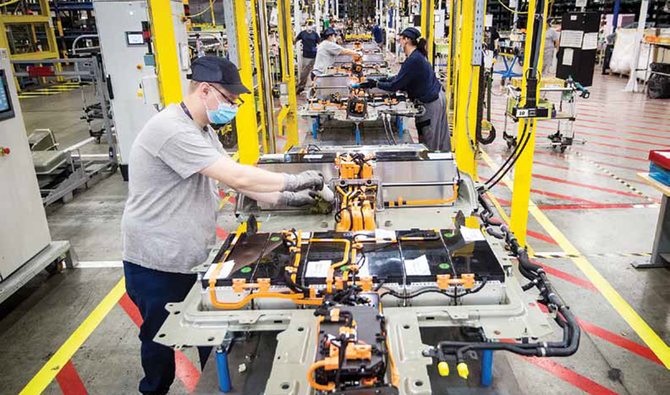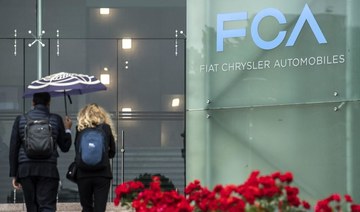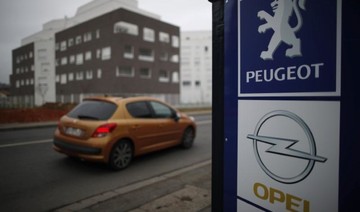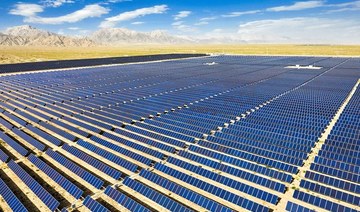FRANKFURT: Peugeot manufacturer PSA Group returned to revenue growth in its core autos division in the third quarter, recovering from a slump during coronavirus lockdowns, though the prospect of new restrictions hit French shares on Wednesday.
PSA has performed better than some rivals after dealerships swung back into action in France and elsewhere from June, a potential boost ahead of its merger with Fiat Chrysler Automobiles (FCA), due to close early next year.
But a resurgence in the COVID-19 pandemic is clouding prospects for the coming months, and France is bracing for a possible renewed month-long lockdown.
PSA shares were dragged 3.6 percent lower, even though the Peugeot and Citroen maker beat quarterly expectations on revenue by a wide margin, analysts at Jefferies said.
PSA’s overall sales totaled €15.5 billion ($18.3 billion) in July-September, down 0.8 percent from a year earlier. But automotive revenue rose 1.2 percent to €12 billion, after ending the first half of the year down 35.5 percent.
Financial chief Philippe de Rovira said September had ended on a strong note with a good order book, adding PSA planned to nudge up production in the fourth quarter versus a year earlier.
Car inventories were 25 percent lower year-on-year in the third quarter, as PSA tries to avoid getting stuck with excess stock.
Bar any unexpected COVID-19 measures, the group would likely generate positive cash flow at yearend, De Rovira added, while the group kept its target for an adjusted operating margin for its automotive division of more than 4.5 percent for 2019-2021.
Under CEO Carlos Tavares, PSA has focused increasingly on its more expensive and profitable models — a model PSA’s French rival Renault is trying to emulate as part of its turnaround plan.
PSA’s car sales volumes fell in the third quarter, but this was offset by the popularity of higher priced models. New launches such as the SUV-style Peugeot 2008 helped, it said.
The group’s $38 billion merger with FCA, set to create the world’s fourth largest carmaker under the name “Stellantis,” is due to close in the first quarter of 2021.
The companies are set to win EU approval for the merger, sources told Reuters this week.
De Rovira declined to say whether PSA and FCA would speed up their merger if a decision came this year.
The companies have pressed on with one more step in the process, after their boards agreed PSA could sell up to a 7 percent stake in car parts maker Faurecia.
The proceeds will be distributed to Stellantis shareholders in cash, alongside a distribution-in-kind of PSA’s remaining Faurecia stake — a move aimed at avoiding antitrust opposition that might have arisen if Stellantis controlled Faurecia.























